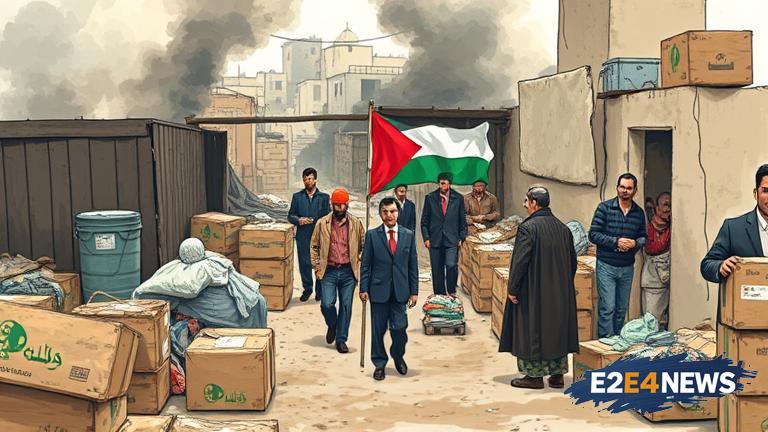The Gaza Strip, a coastal region in the Middle East, is facing a severe humanitarian crisis as a result of a prolonged blockade imposed by Israel and Egypt. The blockade, which has been in place for over 15 years, has severely restricted the flow of goods and people into and out of the region, leading to widespread poverty, unemployment, and food insecurity. The situation has become so dire that thousands of Palestinians are now at risk of starvation, with many relying on international aid to survive. The blockade has also had a devastating impact on the region’s economy, with businesses and industries struggling to operate due to a lack of access to raw materials and markets. The humanitarian crisis in Gaza has been exacerbated by a series of conflicts between Israel and Palestinian militant groups, which have resulted in significant damage to infrastructure and loss of life. Despite repeated calls from the international community to lift the blockade, Israel and Egypt have refused, citing security concerns. The situation in Gaza has been described as a ‘man-made disaster’ by human rights groups, who argue that the blockade is a form of collective punishment that is illegal under international law. The effects of the blockade are being felt across all aspects of life in Gaza, from healthcare to education, with many services and facilities struggling to operate due to a lack of resources. The psychological impact of the blockade on the population is also significant, with many people experiencing high levels of stress, anxiety, and depression. The international community has been criticized for its response to the crisis, with many arguing that more needs to be done to pressure Israel and Egypt to lift the blockade. The United States, in particular, has been accused of turning a blind eye to the situation, despite its significant influence over Israel. The European Union has also been criticized for its failure to take decisive action, despite its vocal condemnation of the blockade. As the situation in Gaza continues to deteriorate, there are growing concerns that the region is on the brink of a mass starvation crisis, with potentially catastrophic consequences. The World Food Programme has warned that over 90% of the population in Gaza is now reliant on international aid to survive, with many people struggling to access basic necessities like food and water. The situation is particularly dire for vulnerable groups, such as children, women, and the elderly, who are disproportionately affected by the blockade. The Gaza Strip is one of the most densely populated places on earth, with over 2 million people living in a region that is just 41 kilometers long and 12 kilometers wide. The region has been under Israeli occupation since 1967, and has been the subject of numerous conflicts and uprisings over the years. The blockade was first imposed in 2007, after the Islamist militant group Hamas took control of the region. Since then, the blockade has been tightened and relaxed at various times, but its impact on the population has been consistently devastating. The international community has a responsibility to act to prevent a mass starvation crisis in Gaza, and to work towards a lasting resolution to the conflict. This will require a concerted effort to address the root causes of the crisis, including the blockade and the occupation, and to support the development of a sustainable and equitable economy in the region. The people of Gaza deserve nothing less than the chance to live in dignity and prosperity, free from the shackles of occupation and blockade.
